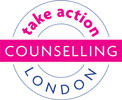We have to come to leave our parents in the sense that we don’t hang about waiting for them to give us something more” Robin Skinner and John Cleese: “Families And How To Survive Them”
Published by Mandarin 1990 (page 298)
It is important to look at our families to understand where we are now. Generally speaking, our family sets up the criteria for choice for our adult lives – this includes who we choose to marry or be our partner and how we behave in relationships. It is therefore important to understand the effects our original family had on us.
Families – An Ideal
In an ideal world families are to be a place where children are named as valuable people. A place where their needs for bonding, nurturing, unconditional love, protection and acceptance were met. A place where they could explore and express their personalities and character. A place of self- nurturing and a modelling area for a child where they could learn about boundaries, and limits and inter-personal relationships.
All Families Are Imperfect
There is no perfect family – all families have difficulties in one way or another, however there are some families where things have not just become stressful at times, but abusive and even dangerous for children. Those early years often form deep seated impressions can have long lasting effects on personalities. When the deep human needs of the child are not met the child can become damaged.
How Children Think
Children do not think conceptually. They think very literally – they are not able to think “Mum’s having a bad day she must have PMT that’s why she’s being so grumpy!”
Children literally believe what is said to them. So if a child is told “You make me sick” or “You’re such a pain – so stupid” They do literally believe they’ve made the adult sick or they are really stupid. Statements such as this can lodge in their heart and can become a seed bed of shame.
The foundations of interpersonal relationships are laid usually in childhood. If that foundation is one of shame, rejection and abuse then the inner self of that child can grow in a distorted way. The child can begin to live out the dysfunctional pattern of relationships he has been experiencing:
There is a popular saying with a lot of truth in it:
“Sow a thought, reap an action, Sow an action, reap a habit
Sow a habit, reap a character, Sow a character, reap a destiny”
Over time we can often see how our childhood has shaped us and parents who are bad carers or worse – parents that neglect, abandon and abuse – do leave children open to feel needy and uncared for both as children and later as adults.
